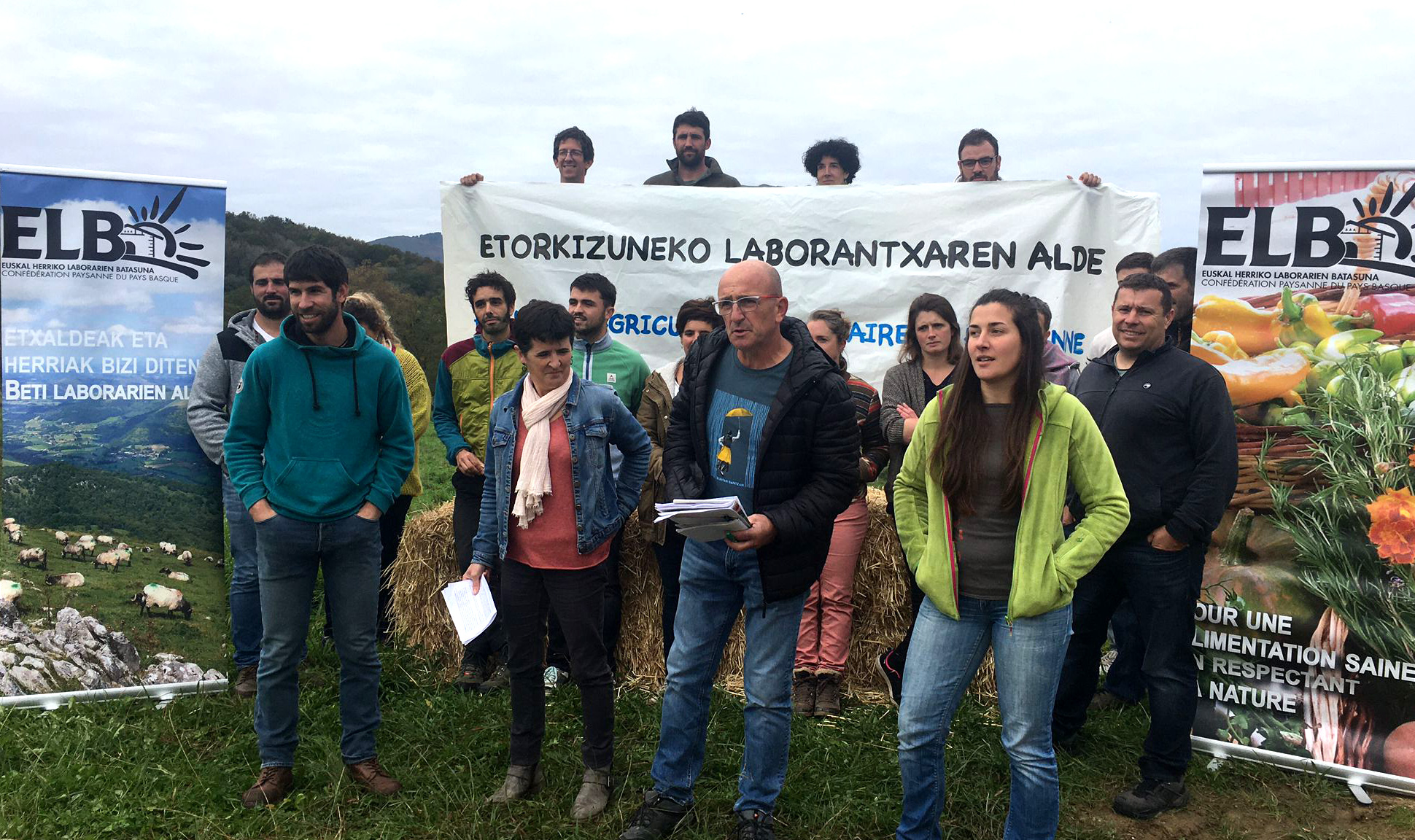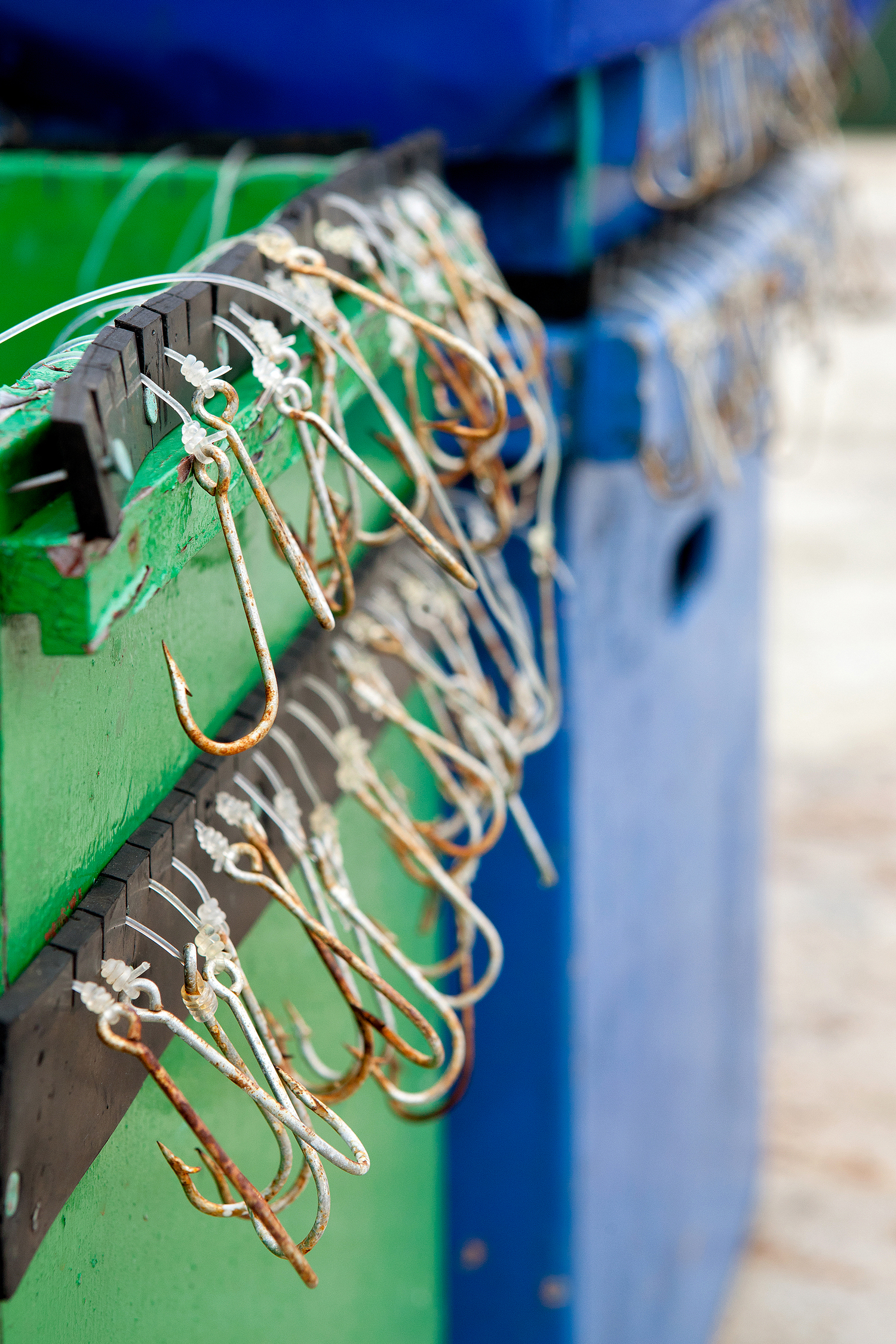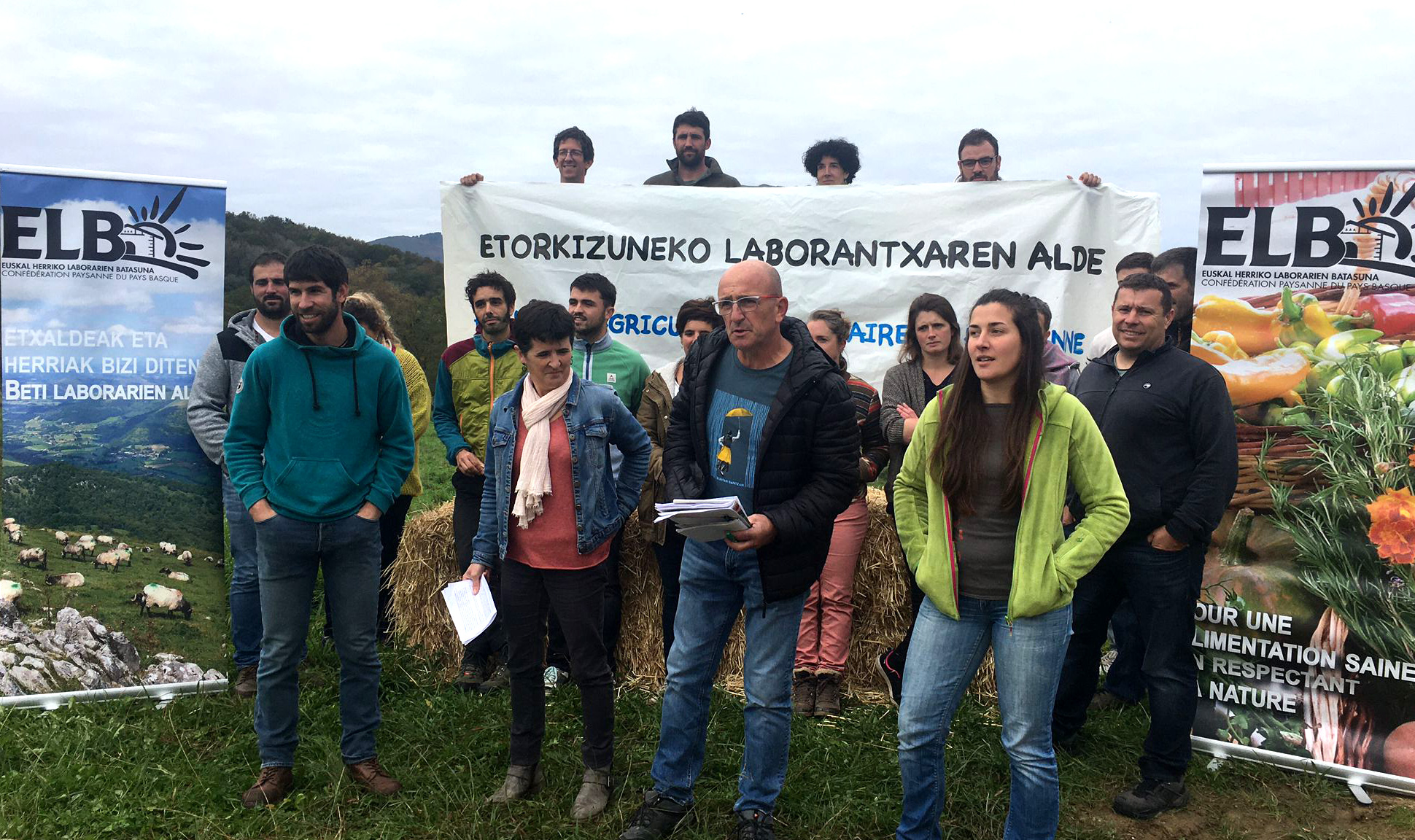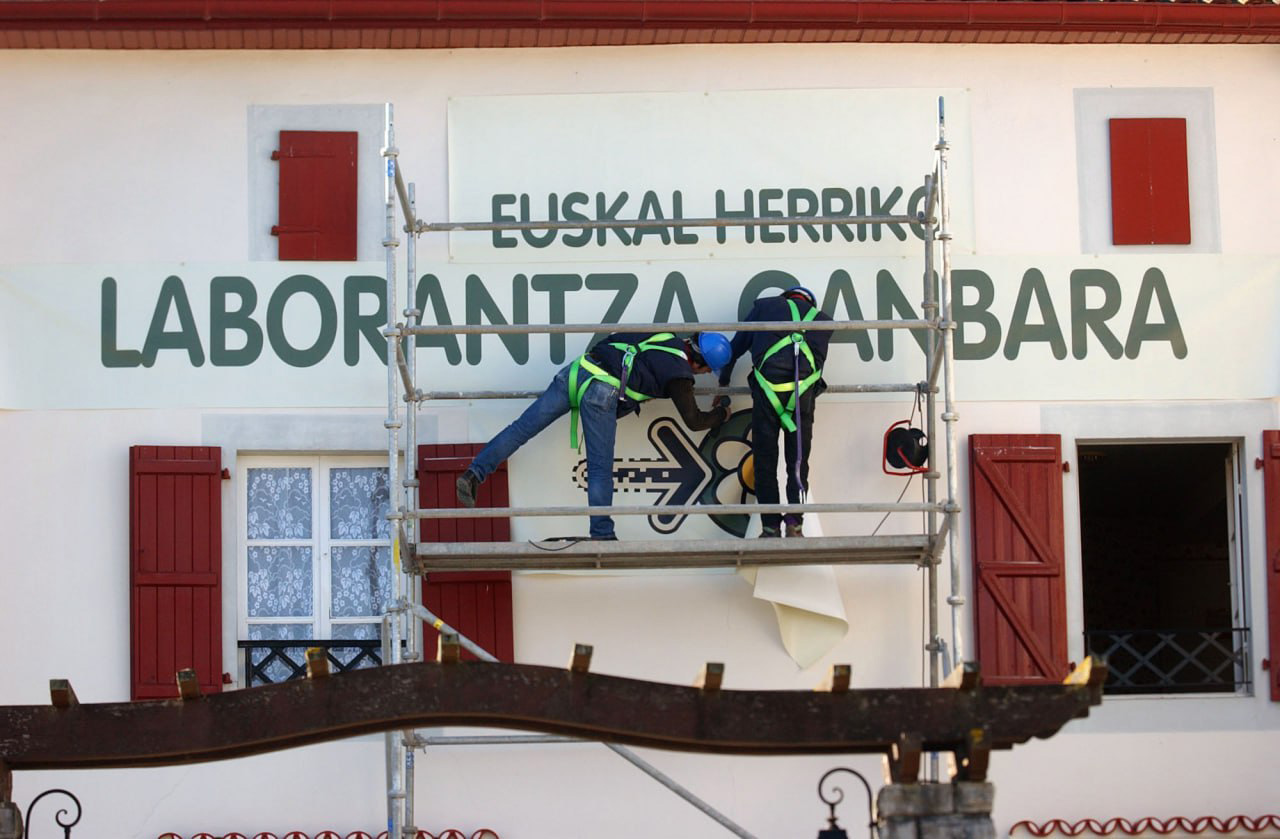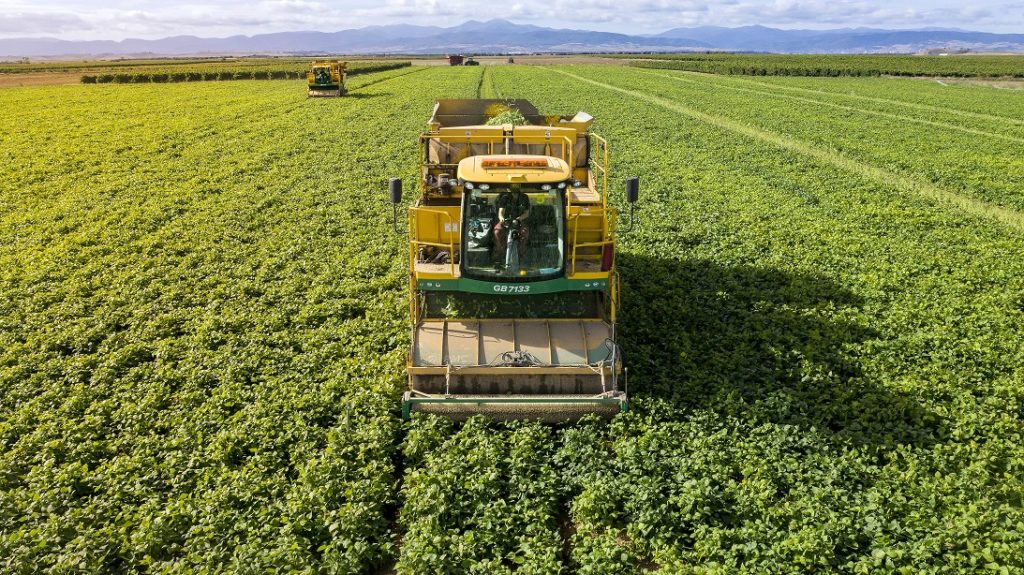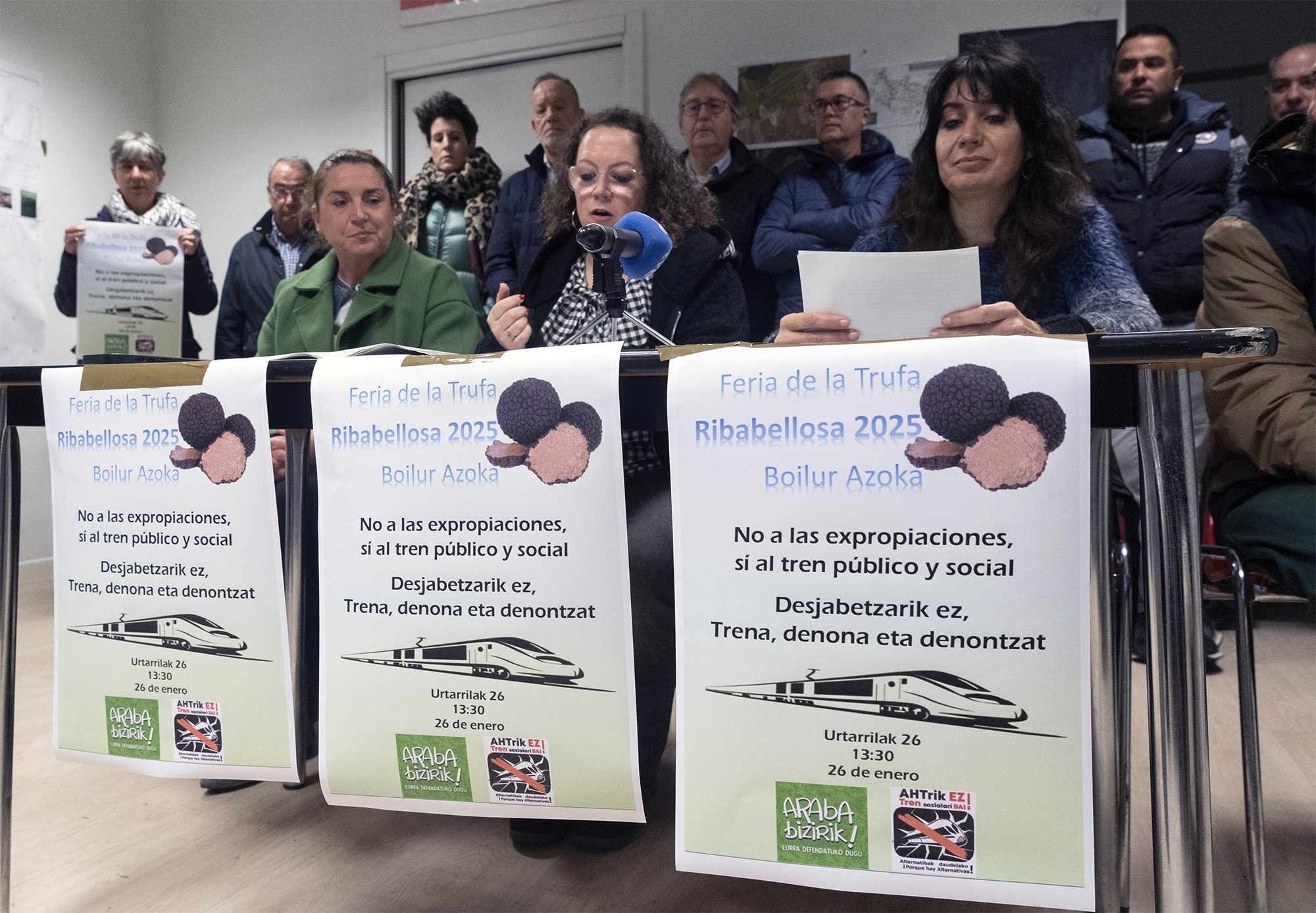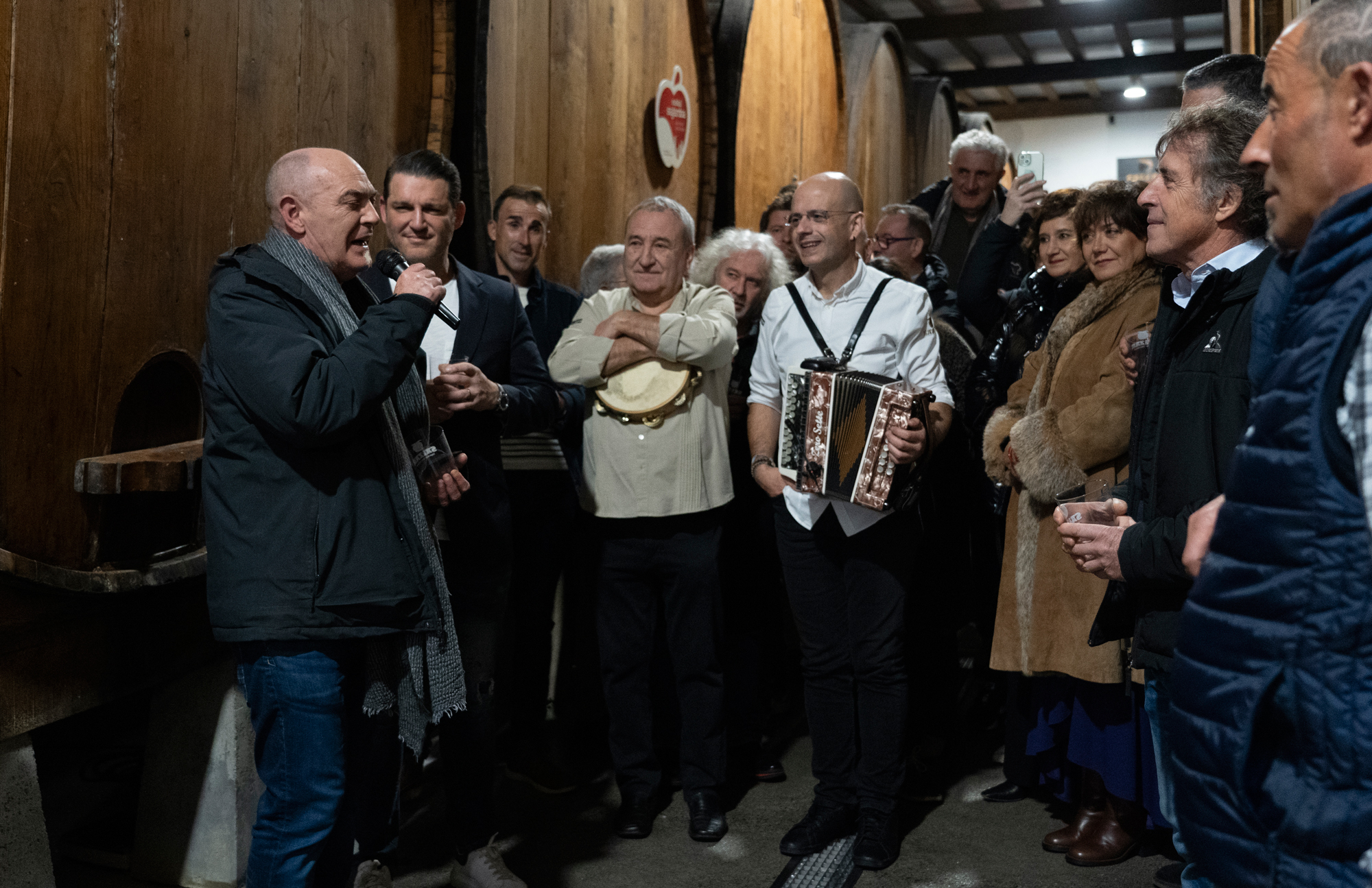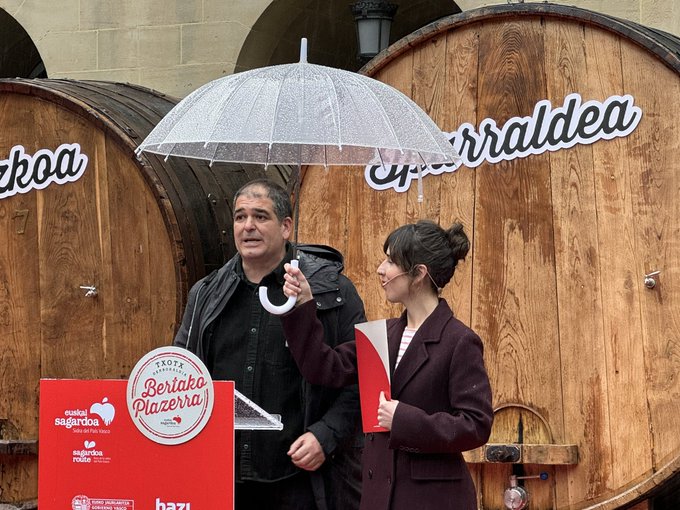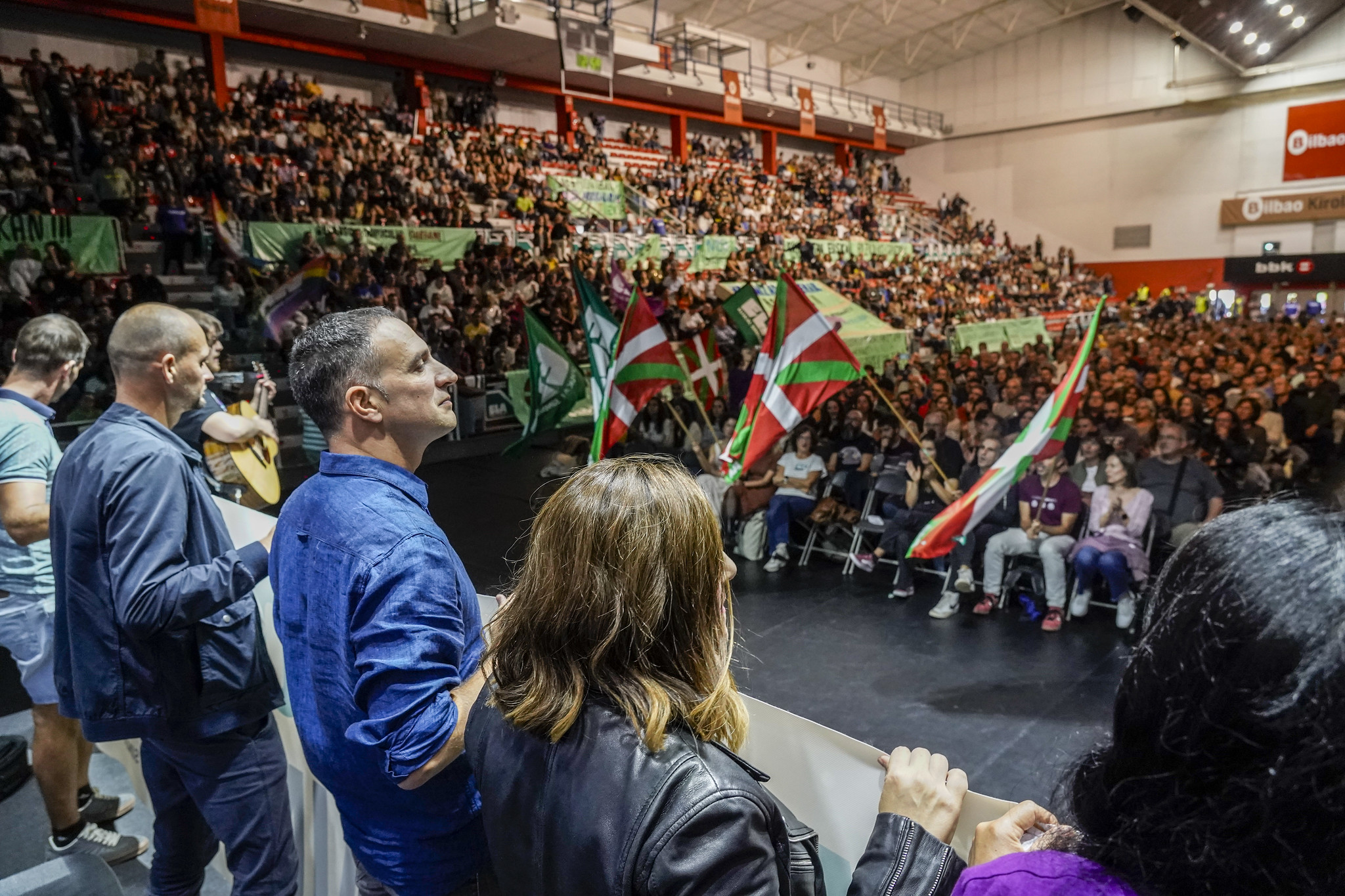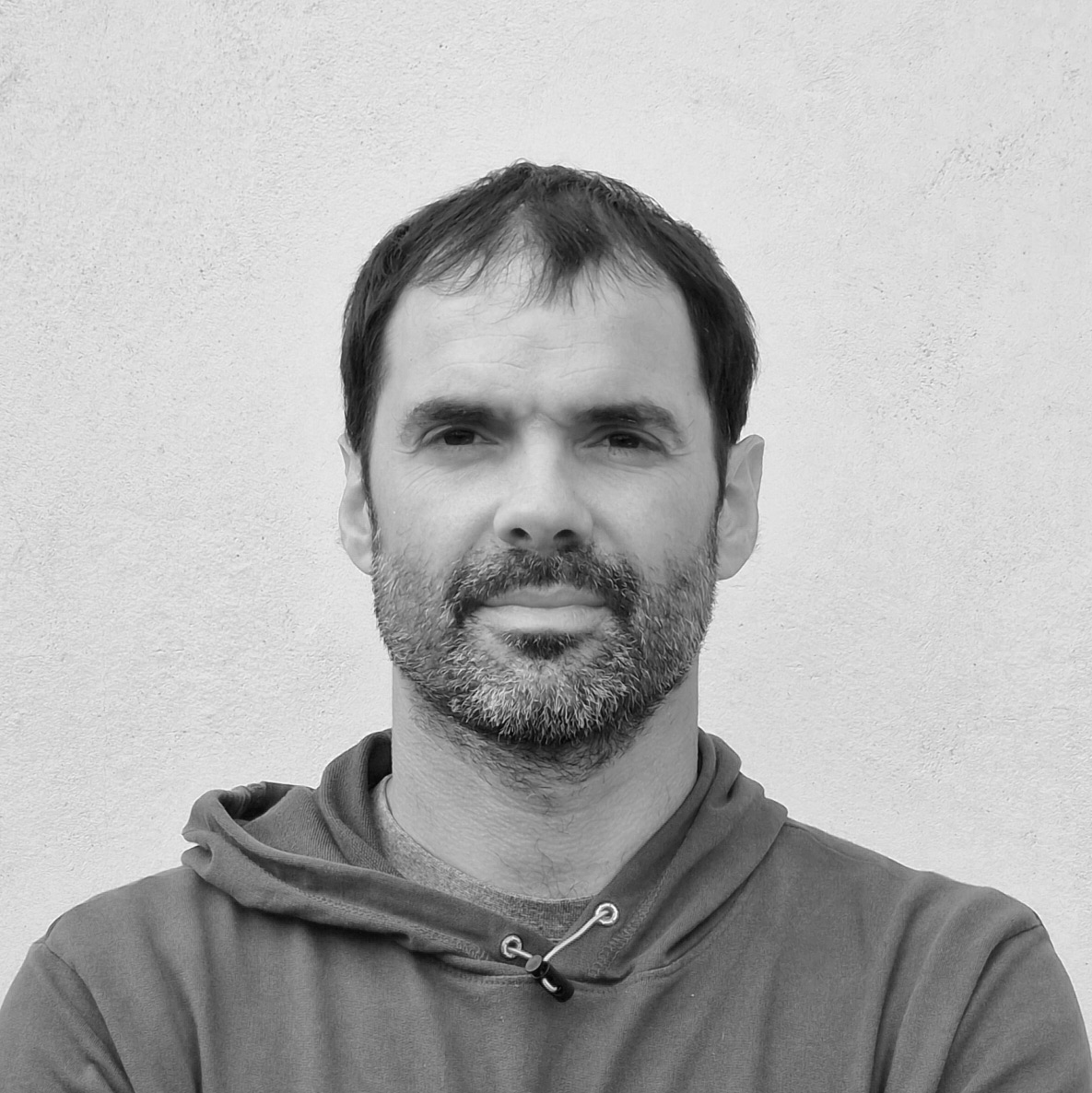"The pace of agriculture does not match the speed of today's society"
- It seems to him a great title “farmer”. He as a “viticultor.” But in fact, he's a winegrower farmer. And she's really a winegrowing farmer. And Ana Iriarte Báñez has unearthed the vine like sweet tea -- not always sorrows, not always sorrows.
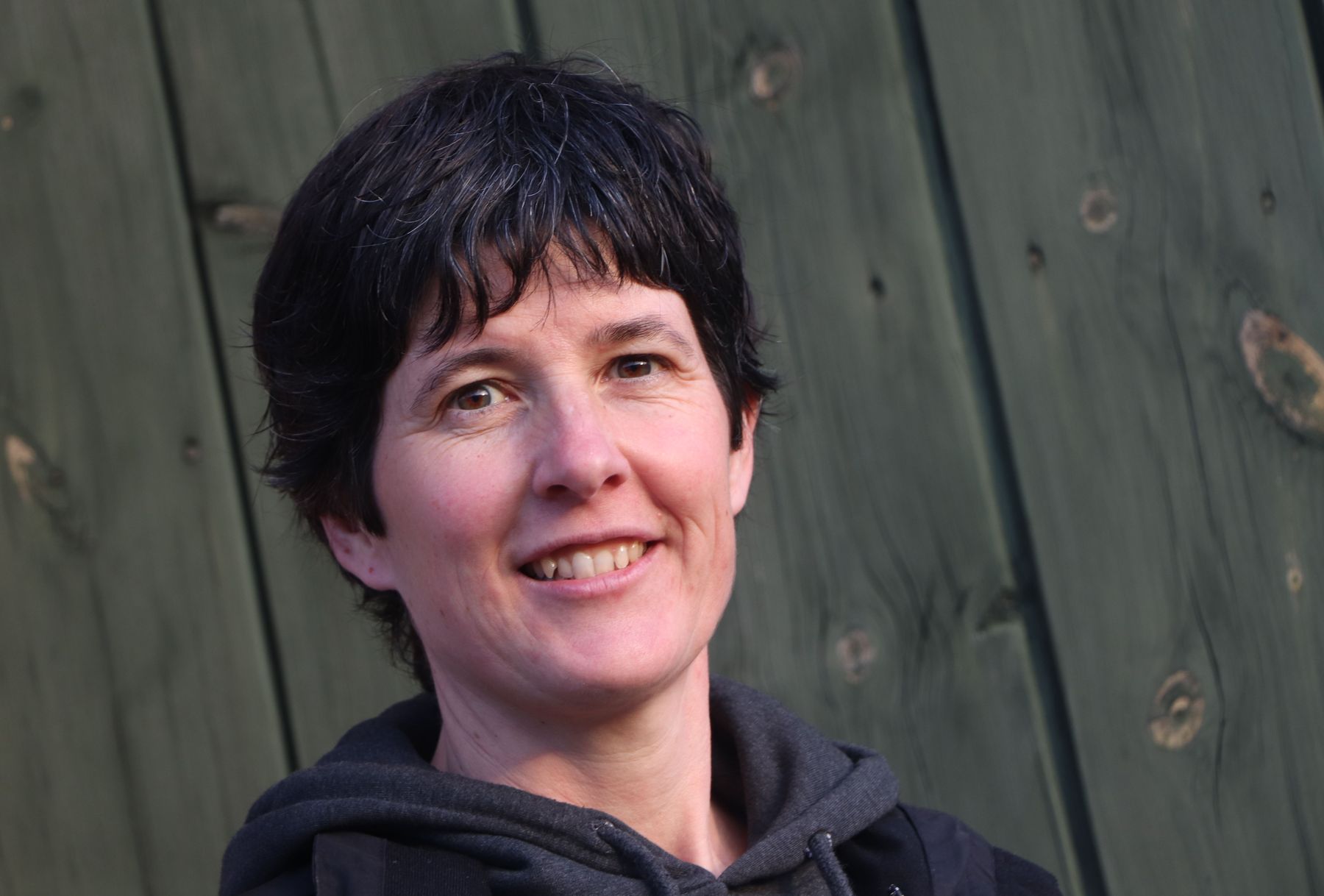
Ana Iriarte Báñez. Arizkun, 1977
Agricultural Technical Engineer by the Public University of Navarra, worked as an autonomous technician in Pamplona for ten years, but since 2013 he has been in Arizkun, in viticulture, in defense of the land and against projects that seek to destroy work and life in relation to the land, in favor of the female farmer, in favor of the Basque... against all kinds of easy and cheap speeches.
I called him on the phone, creating myself a labrador, but he rushed me, telling him that he was a viticultor. Is it not, therefore, labrador?
Ha ha ha! It's a special word for a peasant. He's got a pedigree! If I said in the plaza of our country that I am a peasant, nine out of ten would smile. In the Baztan Valley it is the farmers who have received an agricultural farm from the family, who continue, agriculture linked to livestock farming. I don't know if it's a shame, but I'm not comfortable presenting my head as a farmer. Instead, I present myself as a winegrower, without complexes. Behind this word I feel more comfortable, but simply because here the farmer is very much linked to livestock, to the work of those who have inherited the farm from their parents. That’s why I find it more comfortable “winegrower” than “farmer”.
So, you have not received the work from your home...
No. My partner Iñaki [Bengoetxea] and I started working on this project in 2013. We studied agriculture in Pamplona, in the public university [Navarra], and then suddenly, from theory to practice. I studied studies and worked as a technician in Pamplona for about ten years. In 2008, coinciding with the crisis at the time, we realized it was getting worse, and we decided to come to live in Arizkun and start a project linked to land. Among other works, we performed the first plantation in 2013.
Their vineyards, however. In Baztan there are always cattle, cheese, milk, pork... chocolate. But, grape?
It is not usual, no, the vineyard in Baztan. However, in the old ordinances there are references to the vineyards, which once made wine for domestic consumption. On the other hand, in Amaiur there is a place called Viñi. The representation of the vineyard in the Cantabrian slope of Navarra is rare, but there are vineyards in this aspect. There we have Irulegi, and the truth is that we look a lot at Irulegi, because they are here, and because we find their relationship with the earth admirable. However, the most important wine-growing model in Navarre is that of Mediterranean viticulture.
.jpg)
And, as you said, yours is from the Cantabrian side...
Yes, and on a small scale. That, too, is very important for everything. We are now working three hectares. Then they can be three and a half, or four -- but that's our measure, not bigger. It is true that people tell us many times: “But if it works, you take more hectares and you will increase production, right?” And the answer is no. If it works, it will work and we will live. It's over. Taking more hectares would mean taking more of everything. That's what we have in our heads, always more and more, but it's not our goal, our goal is for Iñaki and I to live worthy of it.
Will you get it?
We think yes, we are gradually going to move forward. But last year, for example, we had a bad year. 2022 was very good. Last year's not. There was a lot of moisture, and we had a syrup, a gorrin, and that also gave us a lot of wood. We were ... And last year, bang! “Let’s see if we’re not able to take this forward!”, made us reflect. But we're leaving.
How do you remember the beginning of your project?
When we started going around the project, to see if there could be any possibility, we first went to EVENA [Station of Viticulture and Enology of Navarra] to the public entity, to request technical advice: “We have this idea in our head, what do you think? Is it crazy or is there any way?” And they told us that they wanted to do a plantation test at Baztan for a long time. The intentions of both sides therefore came together and we signed the agreement. We didn't have land, and we had to rent it. Then those of this institution put in some plants that, for the research, there were no varieties, and we did, and we started. We were also in Fraisoro, taking courses and working on something specific about viticulture, and in Irulegi we went a lot to ask, see and learn the winegrowers there.
You were concerned that your project might seem crazy, as you said.
Yes. At first, we said we had idea, and people took it for crazy. The first time, in the wake of lunch, we started communicating the idea, very clear, but when we got serious and decided to move forward, and when people realized that we were serious -- it really helped us, really. People have come to help us, to plant, to collect grapes... Believing or not believing in the project, but people have always been willing to help. In this respect, we have had incredible help.
.jpg)
On 15 October, International Women’s Day is celebrated in rural areas and, last year, you had a round table at Baztan. Three peasant women were there: Maria Torres, Leire Milikua – author of Lur gainean, itzal azpian (Txalaparta, 2022) – and you... Among other things, they stressed the status of a female farmer. Agriculture
is not free of stereotypes. The word “farmer”, and most will come to mind the figure of man. But women have also been and are peasants, and I hope they are, but they have always been in the background. His work has been invisible, as in many other areas. It seems that they are the help of man, it is necessary to mark our being, and to say “female farmer”: I am not an auxiliary of anyone, I am a female winegrower, self-employed work, in the primary sector. Unfortunately, we still have to insist on this.
Stereotypes always. What image do you perceive? The
same work is done by a man, or a woman, who reads differently. I've often been touched to claim that my wife is a winegrower, because people don't see you as a worker, they don't associate you with the figure of the laborer. As if we worked “the duties, the children and a little in the vineyard”. And the truth is that this is how peasant women have been seen for centuries. That is, when we started the project, as it was in the long term, we saw the need for one of the two to bring us the salary from outside to home in order to make progress on a daily basis.
In this case, Iñaki is out, “at home,” you in the vineyards.
We both sought work and Iñaki was given the opportunity to dedicate herself to teaching. He started working as a salaried worker and in the vineyard, and I was a self-employed winegrower. If it were unfair, the man in the vineyard would not hesitate. He would be a viticultor, a labrador, with all the honors. But people don't read me the same way, and it's up to me to claim my status as a working woman.
And, as we know, it touched you.
Multiple times, yes. However, I have two cases left in my memory. The first time, after one of these courses in Fraisoro, Iñaki and I went into a place where they sold pruning knives. I ask him, and the clothesline – the man – took the knives out and began to teach them to Iñaki! I became invisible! I went out grueling, furious, with the dependent and with myself, because I didn't react in the moment...
And in the second case?
The second was held at a hardware store in Malerreka. We needed deposits, and in the morning, Iñaki called to ask them if they had deposits. And I settled, and I went looking for it throughout the afternoon. She entered the store, asked for the deposit and she said: “But who cares about it?” I told her that Iñaki had called her, but that the two of us were working. She says: “But do you understand this?” I said: “What do you say because I am a woman?” And no, and this and that. He taught me the deposits and gave it all kinds of details, but I doubted everything. “Are you sure?” “I always want a 300-liter elleno,” I say. She says: “Always elleno”... and look in the catalog and bear that name. “Oh, yes, that’s his name,” he says. I asked him: “What are prejudices!” The need to live these kinds of situations remains harsh. But we must react, otherwise we will not make progress.
.jpg)
Speaking more, what do we have at the Baztan? In one, the quarry project was Erdizen; in the other, the quarry was Arizkun. There, in Lekaroz, Aroztegia; here, the macro-project...
The rural environment is a space available for other purposes. Agriculture, for its part, is an activity that is available for other purposes. Always for other purposes! The Erdiz project, for example. It is a communal land, of all the baztans, and a foreign multinational will come to exploit and disappear that land for its own benefit! The worker is often used: “We will create 39 jobs!”
They're always there, they're going to create jobs.
But Erdiz has created jobs for centuries! And it will continue to create. But they're not spectacular. The rural environment is secondary in this society and agriculture is a secondary activity. And they make sustainability and sustainability speeches! And the politicians who are supposed to be progres, naming and accepting the Projects of Supramunicipal Incidence. They're telling us that we're stupid, that we're not able to manage our space, that they're going to manage it, on our part. How little shame, no?
Do the people on the street understand the peasant world?
Probably not. Living in our uncertainty doesn't come into people's heads. On the other hand, there is also the issue of the pace of work. Agriculture has its own pace, each can speed up, but the plant will follow its own pace. That rhythm also needs to be lived. We, moreover, committed ourselves to a long-term project, as the plantations did not do so in the same year, because we did not have enough capacity – neither land nor enough money – which necessarily has further increased the time we had set ourselves to advance the project. The pace of agriculture does not correspond to the speed of today's society.
* * * * * * *
First harvest
“In 2013 we made the first plantation, and in 2015 and 2018 we made more plantations. We collected the first harvest in 2016. It was a small thing, but back then they are the first bottles of Xurie from our Baztan, 400 bottles. Now, the last land is not being produced, but the goal is that when the three hectares start to be produced, between 10,000 and 12,000 bottles go out. For us, production, but for any other winery, is insignificant. It gives a lot – and it’s what we are – but it’s small.”
White.
“In Irulegi they make black, red and white. We, on the other hand, turn to white. It seemed to us that it was easier to make the target, both at the time of elaboration and at the time of maturation of the vine. Here there is no sun like it can be in Caparroso, for example. If we have some limits, I mean, within which it's easier to make white. That doesn’t mean we’re not going to put some plants to make [wine] black, but the base is wood.”
Wine, in Basque
“Baztango Xurie is our wine, but we have three varieties. The centerpiece of our project is Kiribil, which we do in the stainless warehouses. In small quantities, in wooden barrels, we make two other wines: Drink and Okoro. Spiral is the spiral of the vine. Okoro, Middle Zone Mount. And Bethee, another mountain, ‘next to Alkurruntz’, as people say. This hill ‘next door’ is called Bethee.”
“Uncertainty
is always there. The grapes prepared, perhaps, and the stone! This means that year-round production can be suspended. It's a big uncertainty, a big concern, and sometimes you say, "But what for?" Other times, however, you have no question of moving forward.”
Arrantza handi eta industriala defizitarioagoa da sozialki, ekonomikoki eta ekologikoki arrantza txikiaren alboan; arrantza txikiak baino dirulaguntza publiko dezente gehiago jasotzen ditu; eta are, soilik laguntza horiei esker bizirauten du. Horixe erakutsi du Frantziako... [+]
Datorren astean Departamenduko Laborantza Ganbarako hauteskundeak ospatuko dira Ipar Euskal Herrian. Frantzia mailako FDSEA eta CR sindikatuez gain, ELB Euskal Herriko Laborarien Batasuna aurkezten da, "euskal laborarien defentsa" bermatzeko.
Euskal Herriko Laborantza Ganbera elkartearen hogei urteak ospatu zituzten asteburuan Ainhize-Monjolosen. 2005eko urtarrilaren 15 hartan sortu zuten Lapurdi, Baxenabarre eta Zuberoako laborantzaren garapena –hori bai, iraunkorra eta herrikoia izan nahi duena–... [+]
Departamenduko Laborantza Ganbarako hauteskundeen kanpaina abiatu da. Urtarrilaren 14an bozetara aurkezten diren hiru sindikatuen ordezkariekin bi oreneko eztabaida sakona antolatu zuten Euskal Hedabideek, osoki euskaraz.









